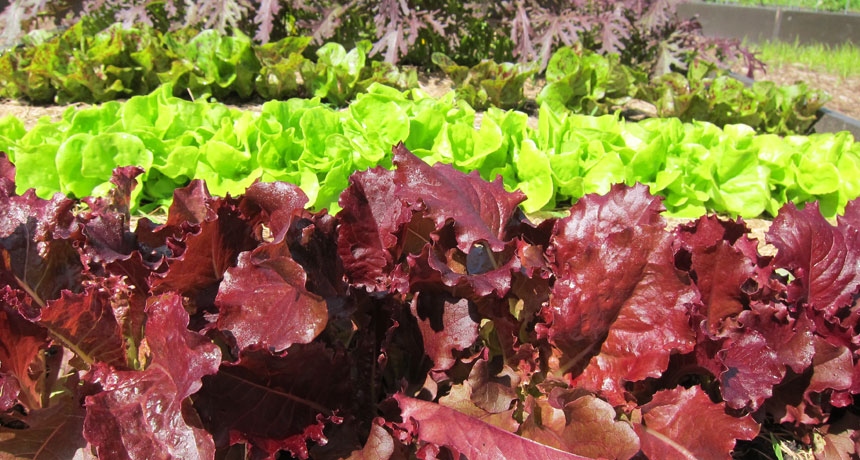Questions for ‘Organic foods start to prove their worth’

Organic red and green lettuces grown at Rodale Institute's farm in Kutztown, Pa.
Rodale Institute
Share this:
- Share via email (Opens in new window) Email
- Click to share on Facebook (Opens in new window) Facebook
- Click to share on X (Opens in new window) X
- Click to share on Pinterest (Opens in new window) Pinterest
- Click to share on Reddit (Opens in new window) Reddit
- Share to Google Classroom (Opens in new window) Google Classroom
- Click to print (Opens in new window) Print
To accompany feature ‘Organic foods start to prove their worth’
SCIENCE
Before reading
1. What comes to mind when you hear “organic?” Make a list of the words or concepts you associate with the term.
2. Imagine farmers were to stop using pesticides, weed killers and fungicides altogether. As a class, brainstorm some of the short- and long-term effects such a move might bring.
During reading
1. What do farmers mean when they say their fruits and vegetables were produced organically?
2. Can organic farmers use pesticides?
3. What discovery did scientists make about farm risks to Pacific chorus frogs? Why was it surprising?
4. Explain some of the effects pesticides can have on frogs.
5. Based on the information in this story, what have researchers linked to colony collapse disorder?
6. How can growing beans be good for the soil?
7. Define nutrient pollution.
8. List some sources of organic fertilizer.
9. What are antioxidants?
10. Why is the American Academy of Pediatrics more worried about children exposed to the chemicals used on lawns than to their eating chemicals in conventionally grown food?
After reading
1. Imagine you wanted to fertilize a garden at home or school with compost. What materials could you use to create that compost? What will the compost do for the garden?
2. Based on your reading of this article, create two lists that outline the pros and cons of eating either organically or conventionally grown food.
SOCIAL STUDIES
1. Visit this U.S. Geological Survey website. Start by entering into the search box the name of one or more of the pesticides discussed in this article. Next, study the use map for that chemical. The use of that pesticide will differ across the United States. Find regions where its use is highest. Now explain what may make farmers use more of that particular chemical in those places.